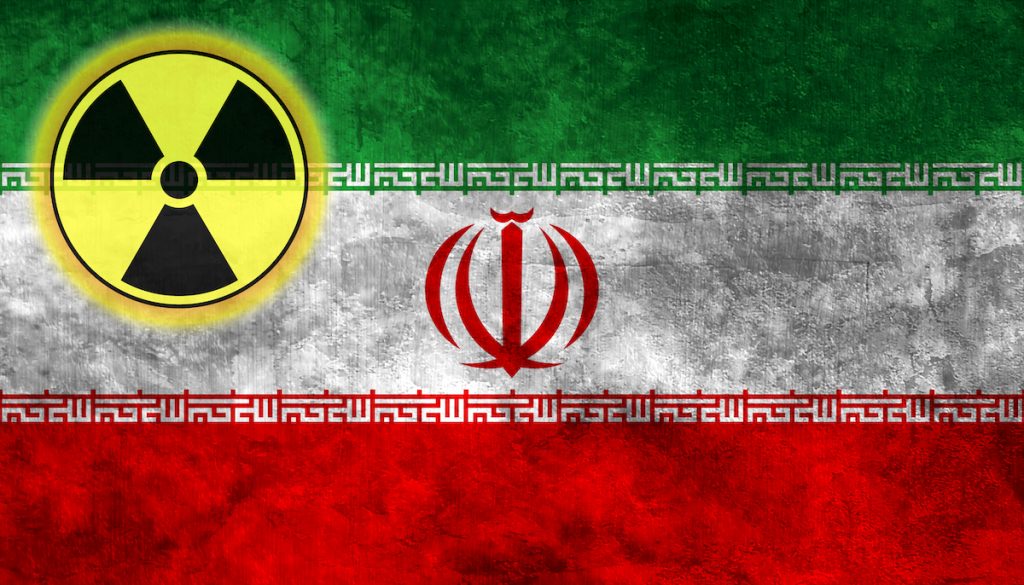IN THE MEDIA
Next up: A nuclear Iran
March 8, 2022 | Colin Rubenstein

Russia’s Ukraine invasion is horrific, but behind it looms a potentially even worse problem for the West
Daily Telegraph – 8 March 2022
The Biden Administration deserves a great deal of credit for uniting the world around biting sanctions intended to compel Vladimir Putin to withdraw his forces from Ukraine. Russia’s naked aggression against Ukraine is a terrible assault against the rules-based system that is the bedrock of global security and stability. Rogue actors like Russia must not be allowed to go unpunished, and only the US can lead the international effort to make sure they aren’t – as the Biden Administration has rightly understood.
This is why it is a great pity that, in a different sphere, the White House appears to be about to do something which will likely negate all its laudable work in shoring up international order over the past few weeks. The US, together with Russia, China and the Europeans, are said to be finalising a virtually pointless, short-term deal that will remove sanctions from Iran and soon legitimise it as a nuclear armed state and regional powerhouse.
The connection between the Ukraine and Iran crises was recently underlined by reports that Moscow is demanding sanctions concessions on Russia trading with Iran as part of facilitating and agreeing to any new Iran agreement.
US President Joe Biden and his Secretary of State Antony Blinken have repeatedly insisted the original 2015 nuclear agreement, also known as the Joint Comprehensive Plan of Action (JCPOA), must be replaced by a “longer and stronger” deal. In doing so, they were tacitly conceding that the original deal – which Donald Trump withdrew from in 2018 – was deeply flawed and couldn’t possibly stop Iran’s march to nuclear weapons.
That deal made a virtue of Iran’s commitment to temporarily limit uranium enrichment, whilst ignoring even more crucial aspects of its nuclear weapons program.
This included permitting Iranian research and testing into ballistic missile technology vital for deploying nuclear warheads and R&D into advanced centrifuges.
Nor did the deal tackle Iran’s ongoing support for regional terrorist groups, including Hezbollah and Hamas.
Yet even the deal’s limits on uranium enrichment end in just a few short years from now, thanks to “sunset clauses”.
While details of the impending replacement deal with Iran are still to be verified, insider accounts suggest JCPOA MK II doesn’t fix its predecessor’s flaws at all, and is actually weaker.
Under the “sunset clauses” – which are reportedly not being extended – come 2031, Iran can legally enrich as much uranium as it wants to any level, including at levels needed to build a bomb.
Moreover, in 2025, the JCPOA’s snapback provisions that would see sanctions reimposed for Iranian violations are scheduled to expire.
This would leave the US and its allies with almost no leverage should Iran decide not to comply with the deal.
And yet, despite these concessions, Teheran wants more, including an end to existing investigations by the International Atomic Energy Agency (IAEA) of its clandestine nuclear activities. It wants non-nuclear sanctions removed, such as those on the Islamic Revolutionary Guard Corps; and a mechanism to prevent future US presidents reimposing sanctions even if Iran violates the deal.
Some commentators suggest it was the failure to make Putin pay a steep price for invading and subsequently annexing Ukraine’s Crimea in 2014 that presaged his latest act of aggression.
Yet, over the past few years, senior Iranian officials have boasted how the regime controls the Arab capitals of Damascus, Baghdad, Beirut and Sanaa. And the international response has been to effectively reward this aggression.
As Iran ramped up its enrichment activities, turned off cameras at nuclear facilities and blocked IAEA inspections over the past year, the US and its European allies have kept bending over backwards to entice Iran to negotiate – even preventing IAEA condemnations of Iran’s obstruction of inspectors.
Meanwhile, the Biden Administration has also turned a blind eye to massive Iranian black market oil sales to China in violation of Washington’s own sanctions.
Moreover, Iran will reportedly be rewarded for violating the original agreement by, for example, retaining the advanced centrifuges it built illegally, instead of destroying them.
Sanctions relief and the release of frozen funds under the revised agreement will flood Iran’s coffers with tens of billions of dollars, enabling Iran to ramp up the activities of terror proxies such as Hezbollah, Hamas, Palestinian Islamic Jihad and the Houthis.
Even veteran members of Biden’s own party are questioning the wisdom of his Administration’s approach. “A year [into nuclear talks with Iran], I have yet to hear any parameters of ‘longer’ or ‘stronger’ terms or whether that is even a feasible prospect,” US Senate Foreign Relations Committee Chairman Bob Menendez said last month. “At this point, we seriously have to ask what exactly are we trying to salvage?”
Russia’s actions in Ukraine are indeed arguably the most serious international crisis since the Cold War, and the world will suffer greatly if they are not addressed, at the very least, with determination and strategic wisdom – plus real efforts to strengthen the military capabilities and the credibility of US-led Western deterrence.
However, much the same can be said about the Iran nuclear file. Russia’s actions show that the idea that concessions and understanding can moderate the behaviour of dictators and expansionist regimes is dangerously wrong. This is a lesson the world in general – and the Biden Administration in particular – must consider before supercharging Iran’s aggressive, rogue regime.





